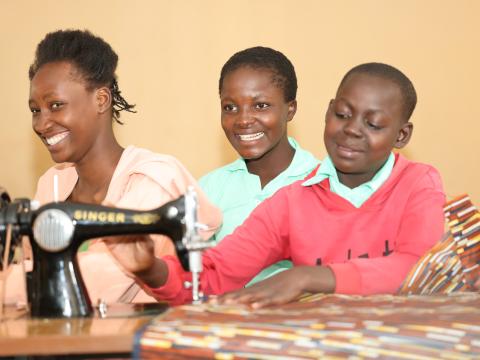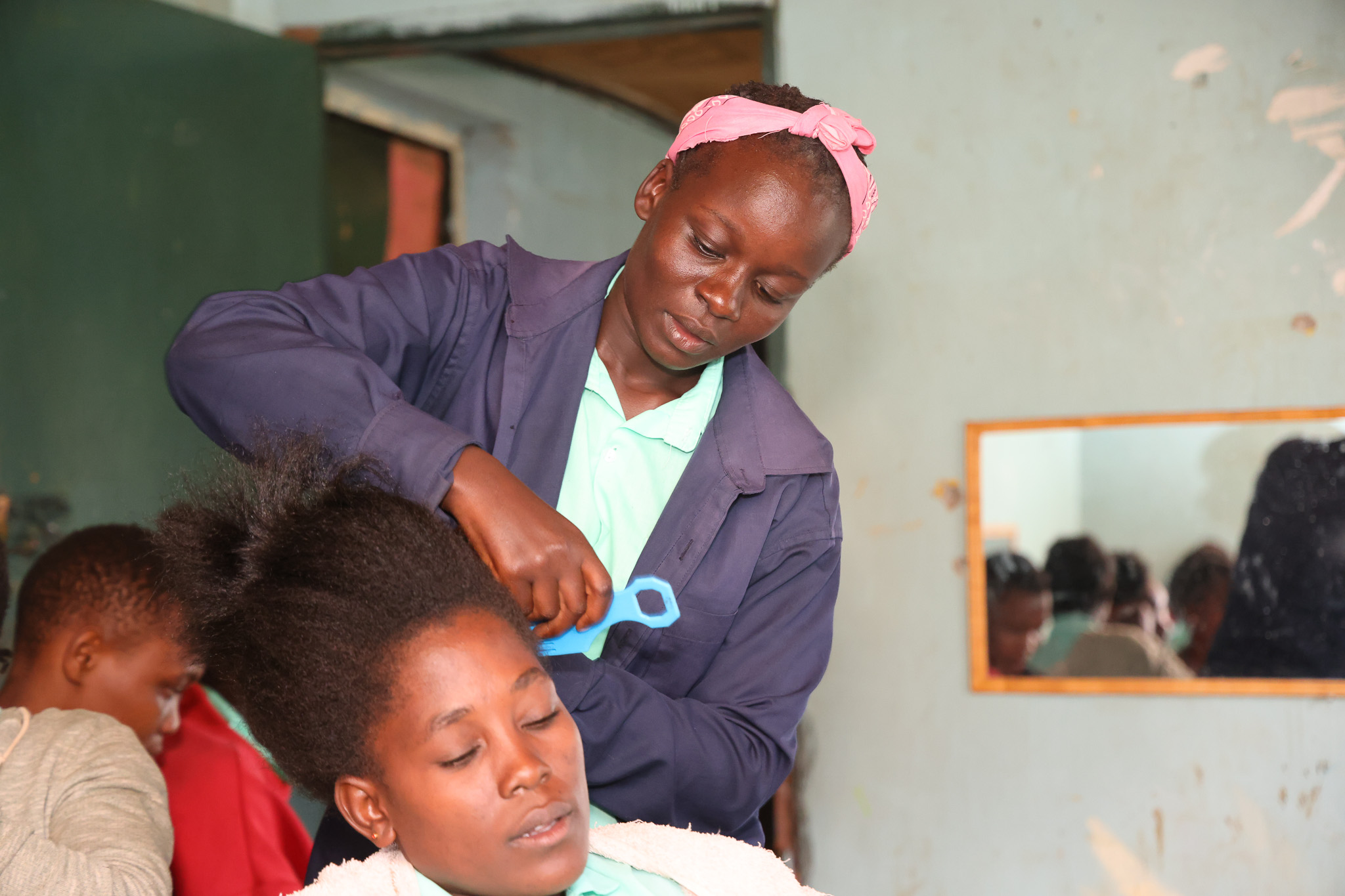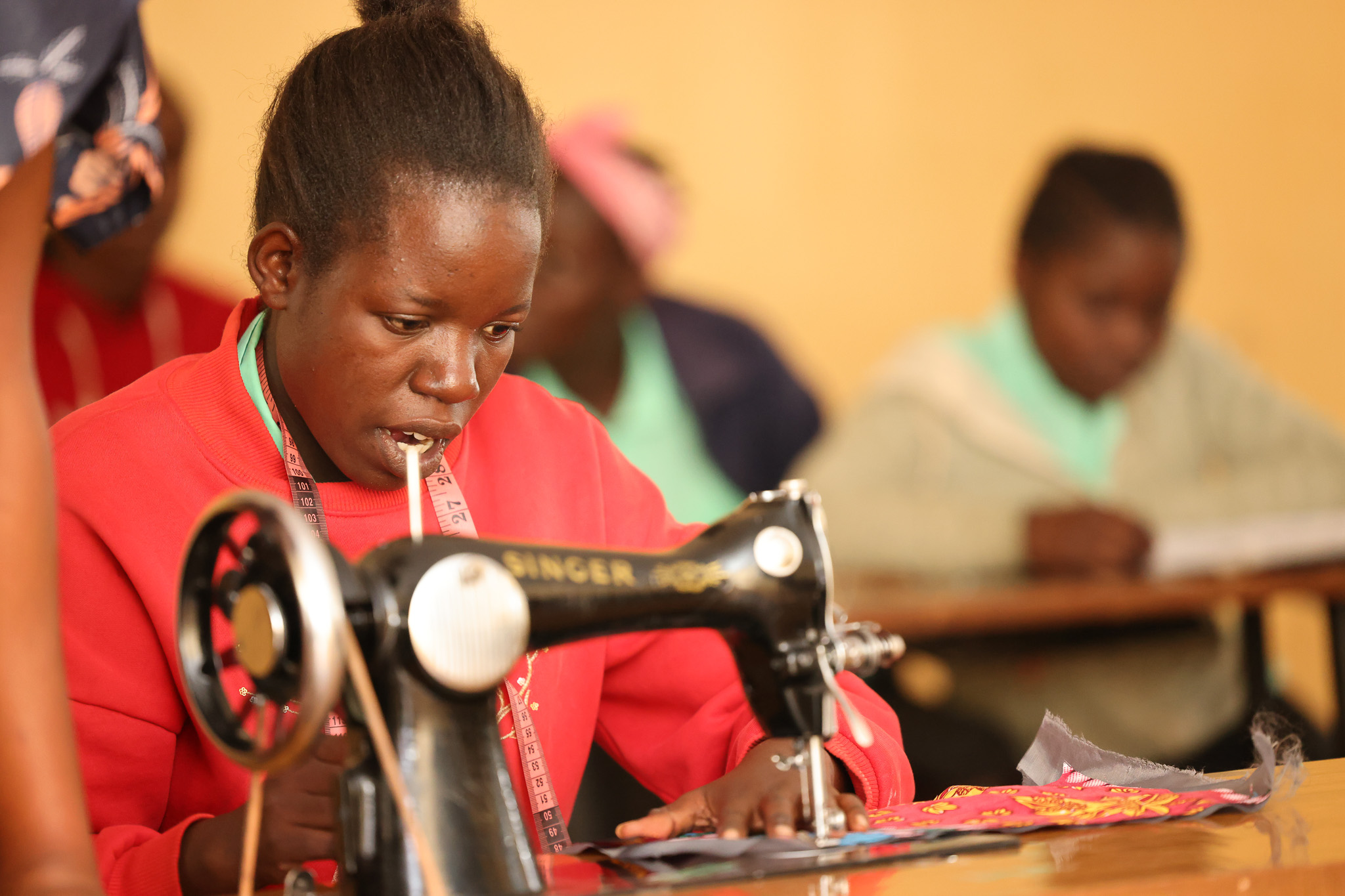Defying Tradition, Defining the Future: Girls Rising Against FGM

In the heart of Migori County, Kenya, 15-year-old Zilpha Akinyi faced a bleak future. Forced to drop out of secondary school due to her family's financial struggles, Zilpha was confronted with two daunting prospects: female genital mutilation (FGM) and early marriage. While her parents opposed these traditions, Zilpha still felt the sting of being an outcast among her peers who had undergone FGM. "In my community, a girl who doesn't undergo FGM is seen as an outsider," she recalls with emotion. "But I remained firm in my decision."
The turning point came in 2024 when World Vision’s Kenya Big Dream Program began recruiting at-risk youth for vocational training scholarships. Encouraged by her primary school teacher, Zilpha seized the opportunity and was selected to pursue a two-year course in hairdressing at Chinato Training College. World Vision’s sponsorship covered 80% of her fees, with the remainder funded by the County Government of Migori.
Now, Zilpha is thriving. “When I left secondary school, it felt like everything was lost, but this course has renewed my hope,” she says. In just a few months, she has mastered essential skills, from shampooing and braiding hair to handling salon equipment. “Since I started this course, I’ve earned the respect of my community,” she adds with pride. Zilpha dreams of opening her own salon and hopes to inspire other girls to defy outdated traditions like FGM. “I want to be a role model and help other girls achieve their dreams, just as I have,” Zilpha says.

Zilpha’s story parallels that of Joy Onyango, a 21-year-old girl who, after completing primary school, faced the same financial barriers that prevented her from continuing her education. Joy was fortunate to escape FGM, and when she learned of World Vision’s sponsorship, she applied and was selected for a two-year dressmaking course at Chinato Training College.
Reflecting on her previous struggles, Joy shares, “Life was tough after dropping out of school. I felt hopeless, but this sponsorship has given me new hope.” She has quickly picked up essential dressmaking skills, including interpreting designs, cutting fabric, and operating sewing machines. “I’m amazed at how quickly I’ve learned,” Joy says.
Joy plans to use her newfound skills to start a dressmaking business, supporting herself and her family. “The skills I’m acquiring will help me earn a decent income and improve my family’s situation,” she says.

Zilpha and Joy are among 100 at-risk youth who have been given a chance to transform their futures through World Vision’s Kenya Big Dream to End Child Marriage Program. They symbolize the dreams and resilience of many girls striving to overcome harmful cultural practices like FGM and early marriage. “I look forward to a day when girls can live free from the fear of FGM and have every opportunity to excel,” concludes an emotional Zilpha.
By David Nderitu, Communications Officer, World Vision Kenya